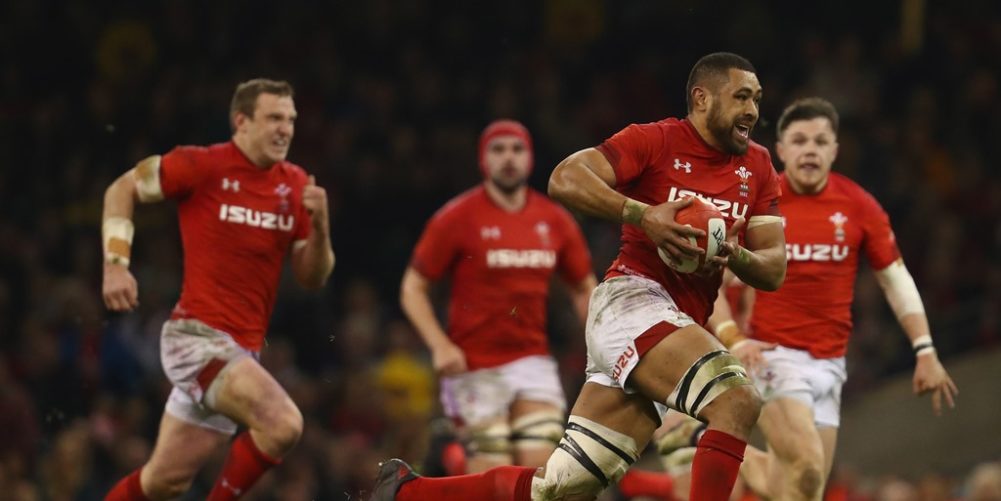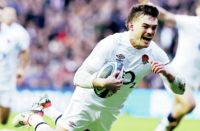WE asked Peter Jackson to pick his way through a subject even more complex and emotive than Brexit – the greatest Wales Grand Slam team of the last 50 years based on those who have done the slamming.
Attempts to resurrect the fabled Big Five for one last selection meeting having failed, he has had to rely on his memories of following Wales since reporting his first match at Cardiff Arms Park in 1965, a Triple Crown winner against Ireland. Some things never change.
Full back: JPR Williams (1969-1981)
Grand Slams: 3
The ultimate warrior who redefined the full-back's specification, from an essentially safety-first defensive role into a counter-attacking one as demonstrated with a 60-metre try-making charge during the 1971 Slam decider in Paris. He also gave Wales and the Lions the priceless advantage of being able to put a one-man Panzer division at their disposal.
His unrelenting ferocity forced Carwyn James to ban him from Monday training during the celebrated 1971 tour of New Zealand rather than expose others to injury. On the two occasions when he rescued Wales with illegal tackles – on Jean-Francois Gourdon at Cardiff in 1976 and Mike Gibson in Dublin the following year – the referees turned a blind eye.
First reserves: Leigh Halfpenny (As brave as they come, a goalkicker of highest quality).
Liam Williams (Majestic graduate of the airborne division and devastating broken-field runner).
Right wing: Gerald Davies (1966-78)
Grand Slams: 3
No convention on the art of wizardry is ever complete until the coalminer's son from Carmarthenshire waves his wand over proceedings. Those who remember his mercurial skills and sublime ability to find space where none existed will lament at how his kind have been pulverised into extinction by the modern game's obsession with brutal power.
At 5ft 9in and not much more than 11 stone, he was the slightest figure in the Test arena during his pomp and yet no defence could cope with his mesmeric ability to turn opponents inside out on the proverbial sixpence, least of all the All Blacks. Eight tries in eight Tests in 1971 brought him a double never done before nor since, a Welsh Slam and a Lions' series win in New Zealand.
First reserve: Gareth Thomas (veteran of four World Cups who led the Lions against the All Blacks shortly after helping Wales win the 2005 Slam).
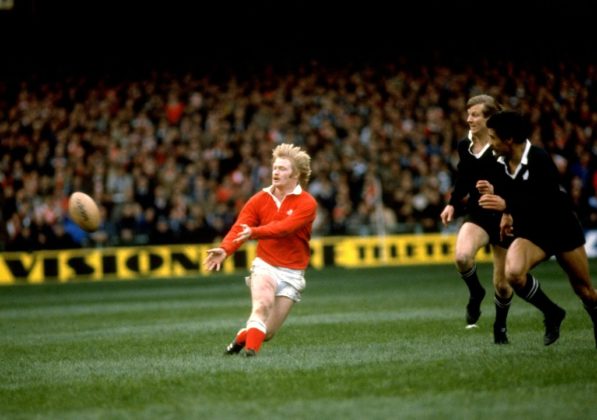
Outside centre: Steve Fenwick (1975-81)
Grand Slams: 2
Followed the trail blazed by Bleddyn Williams from Taffs Well and while he would be embarrassed at any comparison with the prince of centres, Fenwick deserves his place in the supreme XV. His brain power and wide range of skills made him the smartest of operators, as shown by the deftest of passes in putting Phil Bennett through for his famous try at Murrayfield in 1977.
His capacity for delivering his best when it mattered most pulled Wales through an Irish tempest at Lansdowne Road in 1978, keeping them on course for the Slam when it was in some danger of sinking. He scored the first try, created the second for JJ Williams and kicked all four penalties.
First reserve: Jonathan ‘Fox' Davies (An unbreakable pillar in the defensive system).
Inside centre: John Dawes (1964-71)
Grand Slams: 1
The pass master responsible for directing the traffic throughout the historic Lions' series of 1971. Never one to be included among the gazelles like Jeremy Guscott, nor a blockbuster with the destructive power of Jamie Roberts, Dawes was the midfield general, the man who kept the wheels moving.
One of his successors, the late Mervyn Davies, acclaimed him as ‘a great, great captain', so great that he felt Dawes the player became under-appreciated as a consequence.
First reserve: Gavin Henson (Outstanding during the Grand Slam campaigns of 2005 and 2008 before he took a sabbatical from the game aimed at breaking into show business).
Left wing: Shane Williams (2003-2011)
Grand Slams: 2
The last of the good little ‘uns who dared to succeed at a time when the professional game had started to become ever more muscle-bound. It seems almost insulting in retrospect that Wales under Steve Hansen took him to the 2003 World Cup as the third scrum-half only to find out by accident that he had been touched by the same magic as Gerald Davies.
In successive Slam seasons, Williams scored nine tries in the ten games and 60 in total from 91 putting him third in the all-time list behind Bryan Habana and David Campese.
First reserve: JJ Williams (Still the only Lion to score four tries in a Test series).
Outside half: Barry John (1966-72)
Grand Slam: 1
Even now, after almost 50 years, nobody from these islands has come close to emulating what ‘BJ' did to the All Blacks in their own paddock. He bamboozled them with a bewitching concoction of outrageous skills and a divine gift for gliding through gaps only he could see.
Not for nothing did his team-mates agree that the coolest of tens, or ‘a laid-back, arrogant little toad' to quote Mervyn Davies' term of endearment, played rugby from a different planet. Cliff Morgan, no slouch himself, once said: “Like all great ball players, like Pele and Best, Compton and Sobers, Barry always looked as if he had plenty of time to do things. It seemed so easy for him.''
First reserve: Phil Bennett (another genius from the same outside-half factory but the rules demand that I can only pick one).
Scrum-half: Sir Gareth Edwards (1967-78)
Grand Slams 3
No explanation necessary. An outstanding athlete who represented England schools during his time at Millfield, he could also have pursued a career in gymnastics or professional football. Luckily for Wales and the Lions, he chose rugby.
From his debut against France at 20 through to his last international against the same country eleven years later, he never missed a Welsh international. In a position that put him in the eye of the storm, Edwards took the battering and still stayed in one piece except for the last two Tests of the losing series against the Springboks in 1968.
First reserve: Ray ‘Chicko' Hopkins (Blessed and cursed in equal measure. Blessed to have been the second best scrum-half in the world but cursed to have been around at the same time as Edwards. Never lost to the All Blacks).
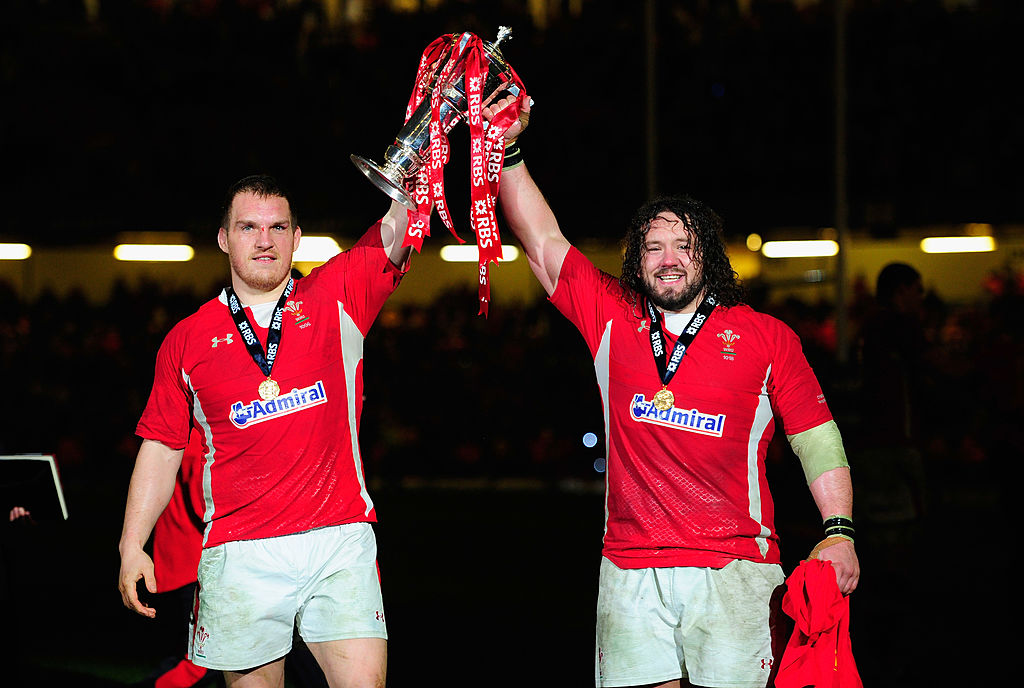
Loosehead prop: Gethin Jenkins (2002-16)
Grand Slams: 3
The very essence of the modern front-row forward. As well as bringing the required grunt to the set-piece, he also brought the handling skills of a threequarter, a turn of speed and, when the occasion demanded, sublime footballing skills which he showed to try-scoring perfection at Ronan O'Gara's expense during the 2005 decider against Ireland.
He maintained those standards over the course of four World Cups, 14 years as an international spanning 134 Tests and kept going until the age of 38. He did it all without ever wasting ten words when one would do, a tetchiness reflected in his dressing-room nickname: ‘Mr Grumpy'.
First reserve: Rob Evans (Maturing rapidly into a worthy successor to Jenkins, no doubt grateful that the game's other Welsh-reared loosehead, Mako Vunipola, opted for England).
Hooker: Bobby Windsor (1973-79)
Grand Slams: 2
A master technician at a time when hookers actually hooked, powerful scrummager and nifty runner, The Duke welded a ruthless plate of armour to his game. Never one to take a backward step, he slugged it out with some of the toughest hombres in the game.
His mentor at Pontypool, the inimitable Ray Prosser, told me: ‘‘Bobby was so accurate that he'd kick a gnat's eye out from six feet. They were all hard men back then. As well as the usual punching and booting, they'd have taken the corner flag out and tried to stick it up your backside if they had half a chance so you needed to be a bit apish to look after yourself.''
First reserve: Ken Owens (the first hooker since Windsor to win a double Slam).
Tighthead prop: Graham Price (1975-83)
Grand Slams: 2
Still out on his own and likely to remain so in perpetuity as the only prop to play 12 successive Tests for the Lions – New Zealand in 1977, South Africa in 1980 and New Zealand again in 1983. The youngest member of the Pontypool front row, he marked their collective debut, and his own, by running 75 metres for a last-minute try.
First reserve: Adam Jones (So important to Wales that his first-half injury against France in Auckland in 2011 probably cost them a place in the World Cup final)
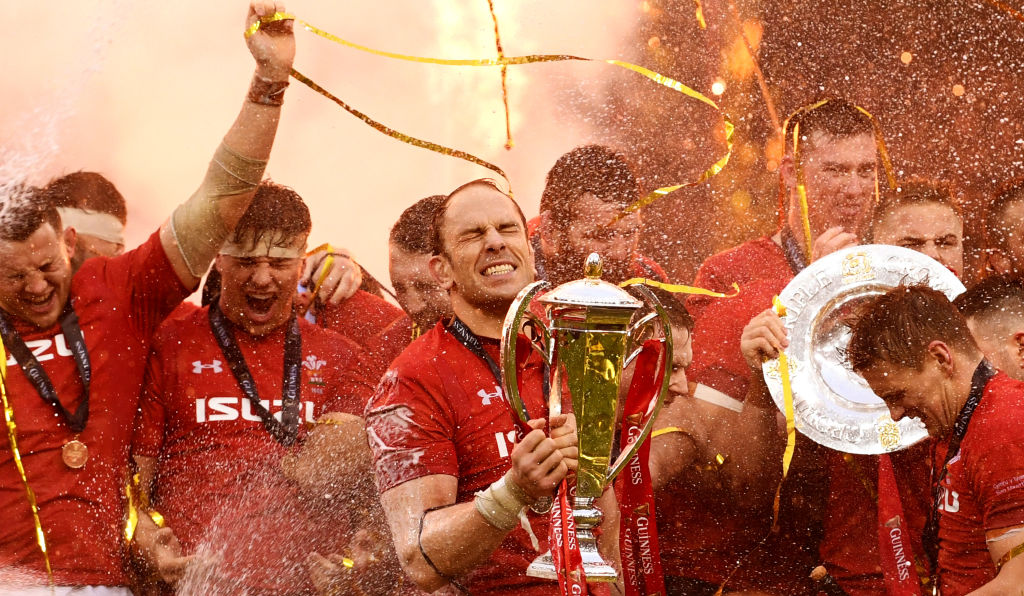
Second row: Alun Wyn Jones (2007-)
Grand Slams: 3
Captain Colossus. There can be no higher compliment than to say he brings the kind of towering leadership to Wales that Martin Johnson brought to England. Neither can there be any doubt that Jones is in with a real chance of doing what his English opposite number did 16 years ago, walking off with the World Cup.
Having led his team to the dizzy heights of No. 2 in the official world rankings, Jones will now challenge Wales to make the most of a friendly draw in Japan and settle for nothing less than going all the way to the final.
First reserve: Geoff Wheel (Powerful mauling forward ever present during the last two Slams of the Seventies)
Second row: Ian Evans (2006-2016)
Grand Slams: 2
Despite a career blighted by long-term injury, he stayed fit long enough to reach the heights and make the Lions tour of Australia the year after helping Wales win the 2012 Grand Slam. At that stage, Evans had won deserved recognition as among the best locks in the game only for more injury to bring his Test days to a cruelly premature end at the age of 29.
First reserve: Luke Charteris (Highly consistent performer over 74 Tests in 13 years, the last in Paris in 2017)
Blindside flanker: Sam Warburton (2009-18)
Grand Slams: 1
A specialist openside more than capable of doing the heavy-duty work on the other side of the back row as he proved on several occasions for Wales. Another desperately tough call but the double Lions captain demands a place for a variety of reasons, not least his winning way with referees.
First reserve: Terry Cobner (A proven leader at every level right including a commanding role with the 1977 Lions, his drive helped make Pontypool the most feared club team in the land).
Openside flanker: Justin Tipuric (2011-)
Grand Slams: 2
Such a complete No. 7 that there seems nothing he cannot do, from winning the ball at the breakdown to the front of the line-out. Missing a tackle is an event worthy of national debate, so much so that they really ought to screen him next time for possession of an in-built scythe. And as if that's not enough, he brings a running and passing game worthy of a centre.
First reserves: Martyn Williams (That he still won a century of caps despite having been robbed of many through Brett Sinkinson's bogus claim to Welsh nationality says it all).
Dai Morris (1971 Grand Slammer and one of the most revered men in Welsh rugby, alias ‘The Shadow').
No. 8: Taulupe Faletau (2011-)
Grand Slams: 1
Another tough decision between the best of the amateur era and the best around today. Faletau's physicality and power made him the No. 1 No. 8 throughout the Lions series in New Zealand as it will at the World Cup provided he stays in one piece, something which has proved a recurring problem since he left the Dragons for Bath.
First reserve: Mervyn Davies (Colin Meads pointed to the late Welsh captain's supremacy as a tail-gunner in the line-out as the biggest single factor behind the Lions' success in 1971).
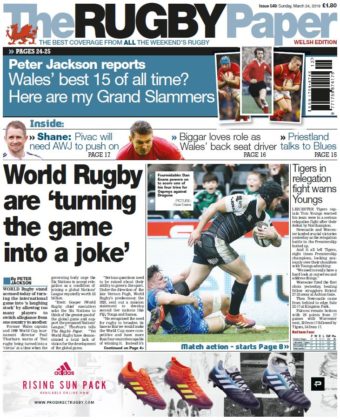
PETER JACKSON / Photos: Getty Images

